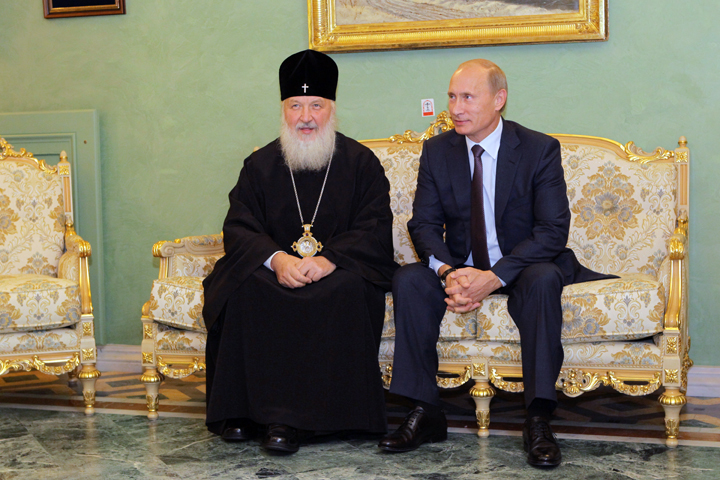The Moscow Patriarchate’s looming loss of control over bishoprics and congregations in Ukraine to a new autocephalous Ukrainian Orthodox Church will deprive Vladimir Putin’s “Russian world” idea of any religious content and transform it into little more than an aggressive form of nationalism, according to Boris Falikov.

In the course of a wide-ranging interview to TV-2 in Tomsk recently, Boris Falikov, a leading specialist on religion at the Russian State Humanities University, says that if as appears likely the Russian Orthodox Church “loses Ukraine and the Ukrainian church, it will cease to be the largest Orthodox church.”
That will be “a blow” to Patriarch Kirill and his hierarchy, but it will have a broader meaning for Russia as well: “The idea of ‘a Russian world’ has been converted from a theological to an ideological concept already” and is on its way to becoming part of a militant, irredentist ideology.”
Consequently, any possibility that the Russian Church will be in a position to restrain the Russian state will be lost – up to now, Falikov suggests, the Church has a vital interest in not doing anything that will lead to the loss of its control over bishoprics and parishes abroad – and that will open the door to even greater dangers ahead.
Falikov’s comments on this outcome come in the course of his discussion of the misuse of the word “secularization” in the Russian context. As he notes, many, including himself, call what is occurring in Russia “the clericalization of society, but this term has been borrowed from the Catholics and requires clarification when applied to Russia.”
What is happening in Russia now, he argues, is different from and worse than clericalization in the usual sense: it is a combination of the state with the church in ways that “will not lead to anything good either for the state or for the church.” The reason for that is that the third element usually present in other countries – a civil society – is absent in Russia.
The Soviet state did not create a civil society, Falikov argues. Instead, it stratified all social groups and formed what many from Sergey Bulgakov on have called a pseudo-religion of its own. That harmed both the church and the state, and when that state fell, many hoped for the emergence of a civil society, of which religion could be a part.
But that process proved stillborn, and now the state is combining with the church in ways that again threaten both, leading the first to take on the millenarian aspects of the latter and leaving the church without the independence that any religious organization needs in order to fulfill its various missions, including speaking truth to power.”
Falikov’s specific words on this point are critically important. “A secular society did not appear [in Russia], he writes. That is, “there did not appear a normal relationship of citizens to religious processes and as a result a clutch of problems arose. As before there are two protagonists: the church and the state.”
“But there is no triangle: there is no secular society.” And it is precisely where all three exist as they do in Western countries that “allows for the balancing of these processes.” In Russia, with one of the three lacking, the entire situation is heading into “a dead end,” out of which, Falikov says, he sees no prospects for emerging unscathed.
According to Falikov, the Moscow Orthodox Church itself is itself not interested in what people now call secularization. “This conditional clericalization is occurring as a result of the efforts of the state, otherwise it would not ever have happened. And the state is using it in its own absolutely pragmatic goals.”
The current Russian regime needs the power of the church “as one of the sources of its legitimation. That is, it uses the power of the church” in such a way that “the church in this sense is not even an independent player,” something that cannot be lost on as canny a politician as Patriarch Kirill.
The church hierarch, Falikov says, can certainly see that he and his church are being used as “part of the ideology of the current regime,” an ideology which includes “irredentism” as in Ukraine and thus one which “the church does not particularly need.” Indeed, one that will end by harming the Russian Church.
In the current Russian government ideology which combines “isolationism and nationalism,” there is room for Orthodoxy to play a certain role, but by itself, it is not needed, and the state takes only what it requires… This is a very curious thing,” and one, Falikov continues, that the current generation of church hierarchs, “don’t know” how to react to.





